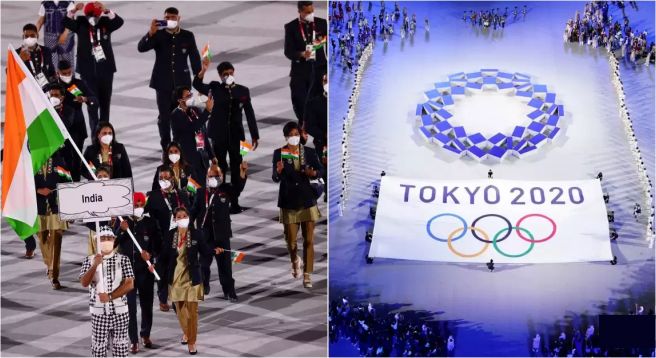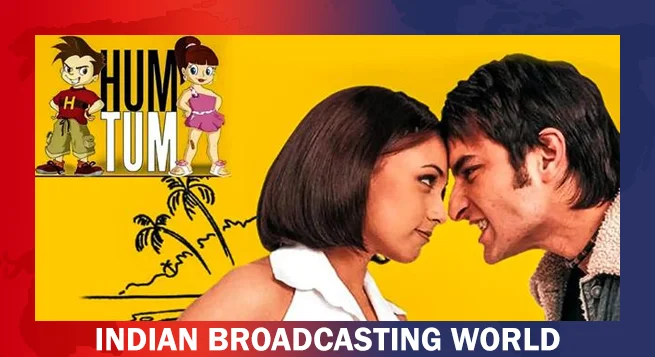NBC’s broadcast of the Tokyo Olympic Games opening ceremony drew 16.7 million viewers, the smallest U.S. television audience for the event in the past 33 years, according to preliminary data from Comcast-owned NBCUniversal on Saturday.
Across all platforms, including NBCOlympics.com and the NBC Sports app, 17 million people watched the ceremony, NBCUniversal said in an email, a Reuters report stated.
The streaming audience on those platforms grew 76 percent from the 2018 PyeongChang opening ceremony and 72 percent from the 2016 Rio opener, reflecting a change in viewing habits.
Friday’s audience reflects a steep drop, despite difficult comparisons with previous opening ceremonies when viewers had fewer streaming options.
The Tokyo opener TV audience declined 37 percent from 2016, when 26.5 million people watched the Rio de Janeiro Games opener, and 59% from 2012, when 40.7 million people watched the London ceremony.
Similar numbers for the India region were still not available despite Indianbroadcastingworld.com making attempts to get some early data. In India Sony Pictures Network has the broadcast rights and is airing it on about six TV channels (commentary in various Indian languages) and its streaming platform SonyLIV. State broadcasters Doordarshan and All India Radio too are broadcasting limited India-specific games on its FTA satellite network.
With Indian female weightlifter Mirabai Chanu winning a silver medal on the first day of the Games, the viewership should have increased all round, industry sources said.
Meanwhile coming back to NBC numbers, Reuters reported that the opening ceremony drew the lowest audience since the 1988 Seoul Games, which attracted 22.7 million TV viewers. It was also lower than the 1992 Barcelona Games, when 21.6 million people tuned in, according to Nielsen data.
The Rio, London, Barcelona and Seoul numbers reflect final ratings data not yet available for the Tokyo Games opener.
As a result of the COVID-19 pandemic, Friday’s scaled-down opening event took place with fewer than 1,000 attendeesat the Olympic Stadium under strict social distancing rules.
In an Olympic #OpeningCeremonylike none before, athletes from across the world paraded into an eerie, almost empty stadium to represent their nations.
Major absences included former Japanese Prime Minister Shinzo Abe, who had wooed the games to Tokyo, and top sponsors, as the event faced strong opposition in COVID-fatigued Japan.
With Tokyo 13 hours ahead of the U.S. East Coast, NBC for the first time broadcast the ceremony live in the morning, at 6:55 a.m. ET Friday. NBC’s taped, primetime broadcast began at 7:30 p.m. ET.
In its primetime coverage, NBC acknowledged the pandemic and its toll while presenting the Olympics as a positive event.
“Absence makes the heart grow fonder,” said host Savannah Guthrie, co-anchor of NBC News’ “Today” morning show. “There’s nothing like an opening ceremony to really get you excited for the Olympic Games.”
NBCUniversal has aggressively pushed its digital platforms this year and views the Olympics as a vital driver of subscribers for its Peacock streaming service.
The company plans to air an “unprecedented” 7,000 hours of Olympics coverageacross its multiple television networks and Peacock. These include some of the most anticipated events, such as gymnastics and U.S. Men’s basketball, on the streaming platform. It will also stream over 5,500 hours of the Olympics on NBCOlympics.com and its sports app.
Not all athletes were present at the teams’ parade during the opening ceremony, due to rules that require many to fly in just before their competitions and leave shortly after to limit social contact.
The TV ratings drop is part of a trend among live TV events, including awards shows and sports.
February’s Super Bowl broadcast on CBS, a ViacomCBS unit, attracted an average of about 92 million viewers, according to Nielsen data, the lowest since 2006. The April Oscars telecast on Walt Disney Co’s ABC broadcast network averaged 10.4 million, a record low, Nielsen said. Audiences for the most recent Emmys and Grammys also hit new lows.
NBCUniversal, which paid $7.65 billion to extend its U.S. broadcast rights for the Olympics through 2032, is framing the games as a “healing” event, despite skepticism from many Japanese citizens about the wisdom of holding even a scaled-down Games during a pandemic.
In June NBCUniversal said it had signed over 120 advertisers for the games, more than any other Olympics broadcast. An NBCUniversal spokesperson said that month the company was on track to exceed the $1.2 billion in ads sold for the 2016 Rio Olympics, but declined to say whether it would beat the $1.25 billion sold last year before the Tokyo Games were postponed.
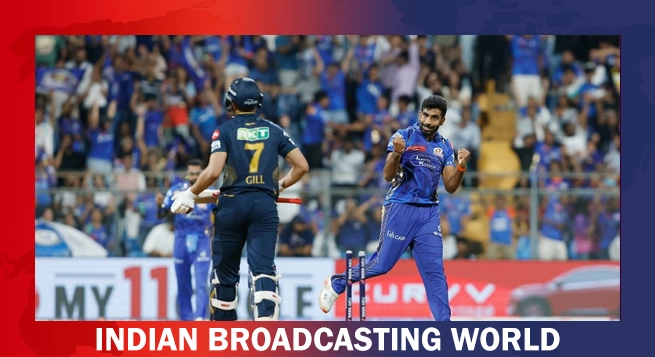 BCCI mulls suspending IPL as India-Pak tensions heighten
BCCI mulls suspending IPL as India-Pak tensions heighten 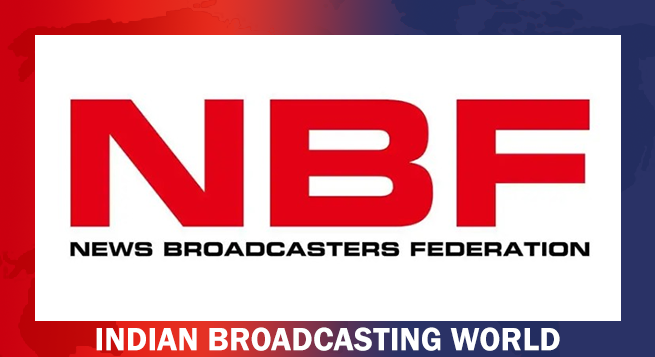 NBF issues another advisory to member TV news channels
NBF issues another advisory to member TV news channels  Govt directs OTT platforms to stop airing Pak content
Govt directs OTT platforms to stop airing Pak content 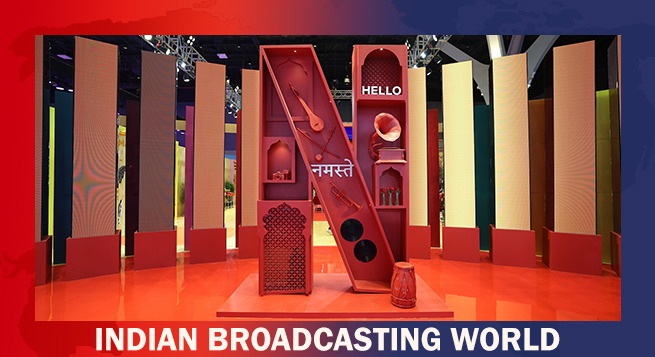 Netflix to have AI-powered iOS search in TV app revamp
Netflix to have AI-powered iOS search in TV app revamp  India sets up panel to review copyrights laws, AI disputes
India sets up panel to review copyrights laws, AI disputes  Can Trump’s foreign movie tariff threat impact Indian films’ biz?
Can Trump’s foreign movie tariff threat impact Indian films’ biz? 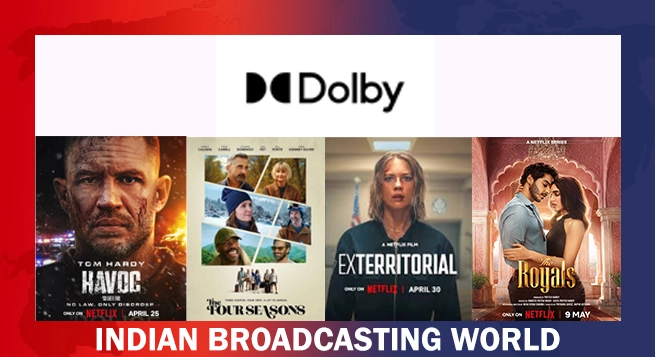 Dolby announces Mother’s Day special content lineup
Dolby announces Mother’s Day special content lineup 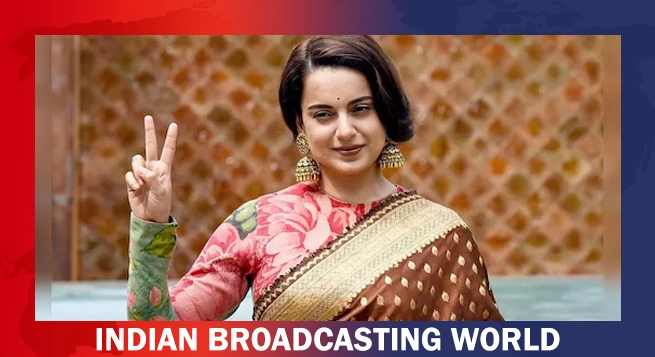 Kangana to make her Hollywood debut with ‘Blessed Be The Evil’
Kangana to make her Hollywood debut with ‘Blessed Be The Evil’ 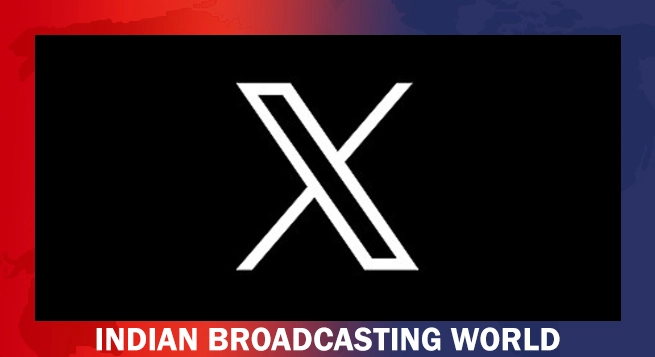 X blocks thousands of Indian accounts after govt. takedown orders
X blocks thousands of Indian accounts after govt. takedown orders 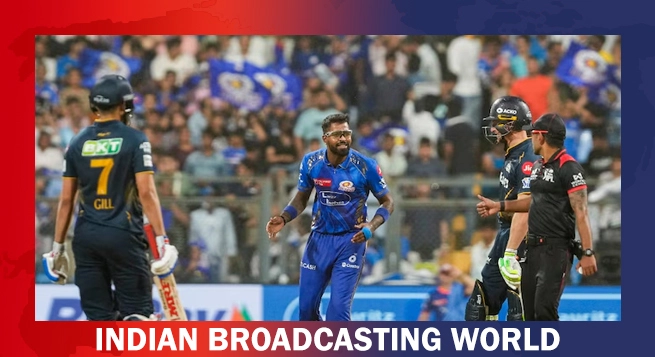 IPL suspended indefinitely
IPL suspended indefinitely 


